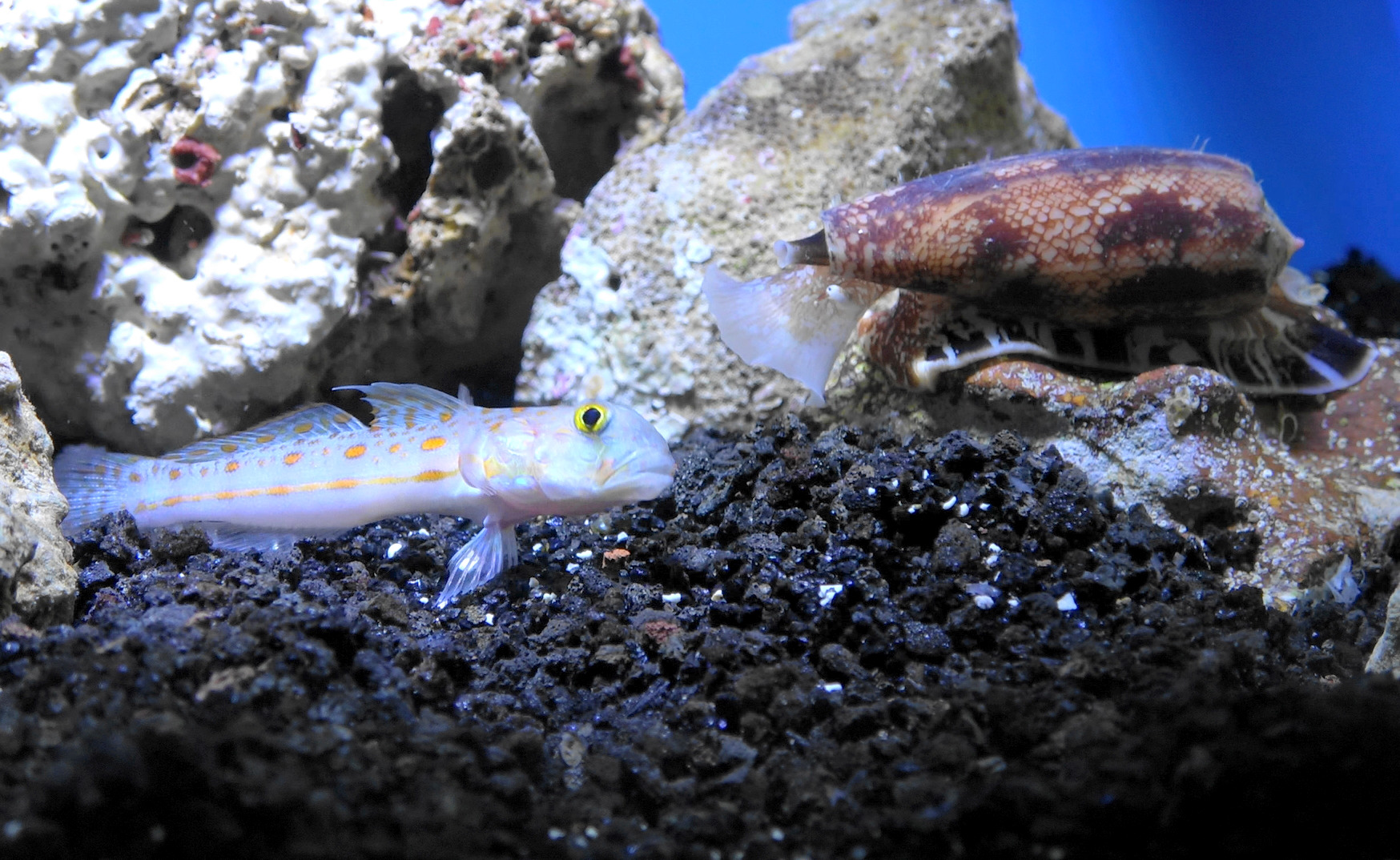
“Rapid-acting” insulin analogs were introduced commercially in the 1990s; however, these insulins are still slower than insulin secreted from a non-diabetic pancreas, taking an extra hour or more to reach full action potential in the bloodstream. Moreover, they stay in the body for several hours, increasing the risk of delayed hypoglycemia after a meal. Therefore, “ultra-rapid” insulins, with more rapid onset and even shorter duration of action, are needed to help people with diabetes gain better control of their blood sugar levels, particularly around meals.
With Breakthrough T1D funding, Helena Safavi, Ph.D., of The University of Utah, decided to take an unusual and creative approach to ultra-rapid insulin development. Dr. Safavi and colleagues study sea snails that use fast-acting insulin, not as a hormone to regulate their blood glucose, but as a toxin to sedate their prey. The snail sprays fast-acting insulin at passing fish, causing immediate hypoglycemia that leaves the fish unable to avoid being eaten. This hunting strategy can only work because the venom insulin has evolved to lower blood sugar so severely.
“I think it’s fascinating that we can tackle long-standing problems in diabetes drug design by merely looking at nature,” says Dr. Safavi. “Fish-hunting cone snails have been using these fast-acting insulins for millions of years, providing a rich and diverse source for novel drug leads.”
In their recent publication, Dr. Safavi, lead author Peter Ahorukomeye and the rest of the team isolated and characterized insulins from multiple snail species so they can understand how they work so quickly and potently, toward the goal of designing new therapeutic insulins for people with diabetes. The authors also include Breakthrough T1D-funded investigator Danny Chou, Ph.D.
“The design of novel ‘ultra-rapid’ insulins would give people with type 1 diabetes (T1D) a critical tool in their diabetes management”, says Jonathan Rosen, Ph.D., scientist at Breakthrough T1D, adding, “it will also enable the development of advanced, fully automated artificial pancreas systems that will provide superior glucose control while significantly reducing the daily burden of disease management.”
See how Breakthrough T1D is working to help people with T1D have less burden and more manageable lives here.